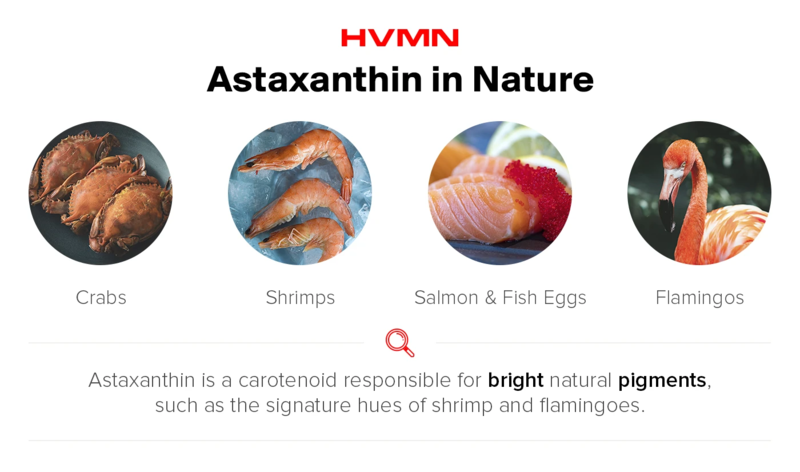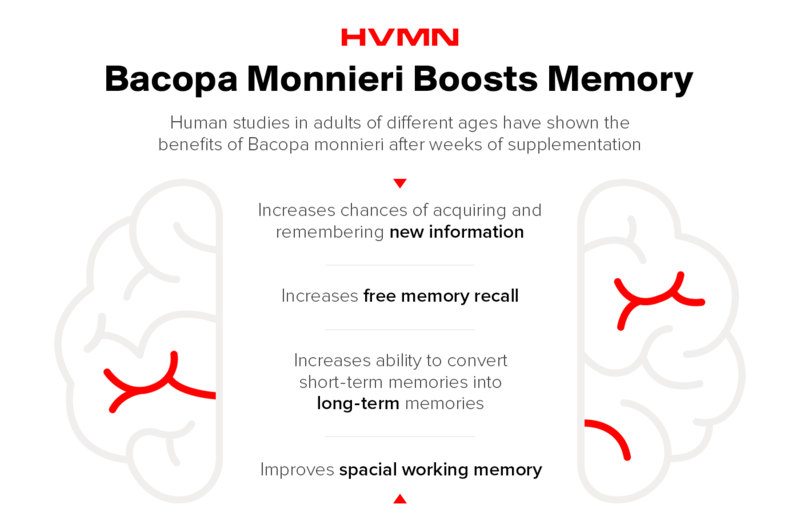L-Theanine: Tea’s Amino Acid for Overall Wellness
1.01K
0
·
2019/08/04
·
9 mins read
☕
WriterShelf™ is a unique multiple pen name blogging and forum platform. Protect relationships and your privacy. Take your writing in new directions. ** Join WriterShelf**
WriterShelf™ is an open writing platform. The views, information and opinions in this article are those of the author.
Article info
Categories:
⟩
⟩
Tags:
Date:
Published: 2019/08/04 - Updated: 2020/05/28
Total: 2068 words
Like
or Dislike
More from this author
More to explore











Originally published on HVMN by Jamie Witherby.
Tea: coffee’s coy competitor in the cutthroat—yet throat-soothing—world of hot beverages. Both provide daily stimulant boosts, both are great to share with a loved one, and both are steeped in rich and complex histories.
But popular teas (like green tea, black tea, and even tea extract and tea constituents) have something coffee doesn’t—an amino acid celebrated for its cognitive performance and wider health benefits: L-theanine (L-THEE-uh-neen).
If you have a cup of green tea or black tea in front of you, take a sip. Savor those tocopherols and flavonoids lending the cup its signature color and flavor. The tea leaves’ distinct bitterness is supplied by natural antioxidants knowns as catechins.1
But there’s another flavor you should be experiencing. A pleasant mouth-filling sensation that creates a rounded and savory taste. Umami often called the fifth taste after bitter, sour, sweet, and salty. Tea’s umami flavor is all thanks to the non-protein amino acid, L-theanine.1
In this article, we won’t just stick to why tea is so tasty. We’ll talk about the positive effects L-theanine can have on your stress levels, cognitive performance, and cardiovascular and immune health.
Brain Boost
A healthy body starts with a healthy brain. L-theanine has proven itself to be a powerful supplement for brain health by assisting with stress, sleep, attention, and memory.
Stress and Anxiety
If you’ve ever brewed a cup of tea to decompress from a stressful day or share with an anxious friend, congratulations—you have fabulous instincts.
Researchers have found L-theanine can reduce our physiological stress responses by altering the behavior of neurotransmitters in the brain.2 But this isn’t a slow, thirty-days-to-better-behavior modification process. L-theanine is tough, immediately jumping on defense.
Taking L-theanine is like hiring a bodyguard for your brain.
Our brains balance activity through excitatory (upper) and inhibitory (downer) neurotransmitters. You’ve probably heard of some of the major excitatory neurotransmitters like dopamine and serotonin. But the balance can shift through an excess of these excitatory neurotransmitters and cause classic responses we’re familiar with: stress, anxiety, and activation of the sympathetic nervous system (also known as the fight-or-flight response).
Taking L-theanine to mimic gamma-aminobutyric acid (a neurotransmitter that blocks impulses between nerve cells in the brain) can inhibit these excitatory responses and ease their physiological stress responses, allowing you to enjoy lower heart rate,2 lower blood pressure,3 attenuations of the fight-or-flight response,2 and reduced cortisol levels (major stress hormone).2,3
If the classic calming effect isn’t revealing enough, let’s pull back the covers on how deeply relaxing L-theanine can be.
Sleep
To catch some Zs, first, we have to catch some waves.
During sleep, it’s all about theta waves and delta waves. Theta waves occur in the first stages of sleep and generate two distinct rhythms of greater amplitude and lower frequency than our waking beta waves. Delta waves are the lowest frequency, highest amplitude waves generated during the deepest stages of sleep. But right before sleep, when you’re still in that daydreamy, relaxed state, it’s all about the alpha waves. The brain generates alpha waves during deeply relaxing activities, such as meditation.4,5
But if you struggle to feel peaceful during meditation or get your mind to achieve that quiet calm right before bed, L-theanine can take you there. Studies have shown that L-theanine can generate alpha brain waves in the parietal and occipital regions of the brain, leading to a prolonged calming effect.4,5 In a placebo-controlled study of young individuals with ADHD, L-theanine proved especially effective in helping them get to sleep and experience deep sleep.6
Sleep problems are often a concern for individuals with ADHD, and L-theanine proved to be a safe and effective therapy to improve sleep quality.
Even if you don't have ADHD, you may benefit from taking L-theanine before bed. However, drinking the amino-acid rich green tea before bedtime may not be the best idea though. Caffeine is a sneaky stimulant. Luckily, you can get all the tranquility of L-theanine without the caffeine boost by taking Yawn, HVMN’s non-habit forming sleep aid. In addition to L-theanine, Yawn contains other REM cycle saviors like magnesium glycinate, amino acid L-glycine, and the classic melatonin for better sleep quality.
Focus and Attention
L-theanine has the power to both calm you down in the evenings and provide a boost in the morning. You know those days; poor sleep quality from the night before leaves you dull, each excruciating minute stretched out between sips of coffee. But all that coffee can have a negative build up, leading to a jittery, on edge feeling while desperately trying not to fidget during your conference room presentation.
If you’re ready to sacrifice the coffee, but not the caffeine, HVMN has Sprint to get your day going. This nootropic stack features L-theanine, caffeine, and the added bonus of ginseng to reduce fatigue. Like the name, Sprint is made to get your mind moving quickly and keep it alert for up to six hours. It’ll provide you with that ideal mental flow to be focused, productive, and energetic without all the jitters.
The same amino acid that ushers you into dreamland can also deliver an attentive state of mind. Multiple human studies show that consuming L-theanine can increase focus, reaction times, and visual processing while reducing mental fatigue.7,8 Essentially, subjects in these human studies performed attention tasks better after taking L-theanine. Their overall mental performance improved.
Even when the mind is in a relaxed state and creating those alpha waves, it’s focused. Consider meditation: its goal is mindfulness, focusing on an inner calm. Meditating is a form of dialed-in concentration that also happens to be calming.
Memory
Maybe you’re a morning master, but you can’t remember the names of half your closest coworkers. Enter L-theanine, which can assist with memory.9
To be clear: drinking a single cup of green tea will not suddenly remind you of where you left your keys. However, consuming L-theanine over time could help protect the neurons in your brain from injury or death to mitigate cognitive impairment and contribute to the development of the hippocampus (which, sadly, is not the future academic grounds of the large semi-aquatic African mammal). But it is the part of your brain responsible for storing memories.9
Start young, and you could even stand a better chance against the oxidative damage and memory impairment of Alzheimer’s.10
Oh, and remember how we talked about L-theanine reducing cortisol levels? Cortisol can negatively impact memory retrieval.11 Reduce cortisol levels, and you may be able to retrieve those memories a little more easily.
We’ve touched upon what L-theanine can do for the brain, but let’s not forget about its benefits for the body.
Body Builder
L-theanine couldn’t let your brain have all the fun. So freshen up your tea, and let’s talk about what your new amino acid can do for your body.
Immune System
Unfortunately, L-theanine is not the cure for the common cold. But it has been linked to increased protection against the flu and a boost in immune function when combined with another amino acid, L-cystine.12 This combination improves the production of Immunoglobin G (IgG), an antibody with a vendetta against infection, and glutathione (GSH), an antioxidant.12
Antioxidants are valuable because they help our bodies remove free radicals. Free radicals are these unpaired, unstable, thieving little molecules that steal electrons from our lipid cell membranes (also called lipid peroxidation). The theft causes tissue and muscle damage and contributes to some of the big name diseases out there: diabetes, heart disease, and cancer. L-theanine has demonstrated powerful antioxidative properties.13,14,15
Cardiovascular System
Because antioxidants help us remove the free radicals that lead to cardiovascular problems like heart disease, L-theanine can do some pretty amazing things for heart health.
Tea leaves from green tea and black tea on their own have been shown to improve cardiovascular health.16,17 And L-theanine sweetens the deal through its ability to mitigate blood pressure increases when the user undergoes acute stress. Translation? Less strain on the heart.18
Supplementing with L-theanine
Not a fan of green tea or black tea? Healthy adults can safely and easily supplement L-theanine at a dosage of 100-200 mg per day, a staggering five to ten times higher concentration than what you’ll find in a cup of green tea.1 So even if you’re already pounding cup after cup of the umami taste bomb, you may not be enjoying all of its benefits...or at least not as efficiently. Consider supplementing with L-theanine to warm up for your day or to cool down at the end of it.
L-theanine hasn't been linked to any adverse side effects or symptoms in the neuropharmacology sphere, but bear in mind that it should not be mixed with medications taken for high blood pressure because L-theanine reduces blood pressure. As with all new supplements and medications, consult with your healthcare provider before taking.
Last Drops
Whether you’re a coffee connoisseur or a tenacious tea drinker, your mind and body will enjoy the benefits of adding L-theanine to the mix. To recap, those are:
Reduced levels of stress and anxiety
Increased sleep quality
Increased focus, attention, and memory
Increased immune function
Increased cardiovascular health
Antioxidative properties
No matter what’s in your cup, we can all raise a glass to that.
Scientific Citations
1.
Borzelleca JF, Peters D, Hall W. A 13-week dietary toxicity and toxicokinetic study with l-theanine in rats. Food Chem Toxicol. 2006;44(7):1158-66.
2.
Kimura K, Ozeki M, Juneja LR, Ohira H. L-Theanine reduces psychological and physiological stress responses. Biol Psychol. 2007;74(1):39-45.
3.
Rogers PJ, Smith JE, Heatherley SV, Pleydell-pearce CW. Time for tea: mood, blood pressure and cognitive performance effects of caffeine and theanine administered alone and together. Psychopharmacology (Berl). 2008;195(4):569-77.
4.
Juneja LR, Chu DC, Okubo T, Nagato Y, Yokogoshi H. L-theanine—a unique amino acid of green tea and its relaxation effect in humans. Trends in Food Science & Technology, 1999(10);6-7, 199-204
5.
Kobayashi K, Nagato Y, Aoi N, Juneja LR et al. Effects of L-theanine on the release of alpha-brain waves in human volunteers. Journal of the Agricultural Chemical Society of Japan. 1998.
6.
Lyon MR, Kapoor MP, Juneja LR. The effects of l-theanine (Suntheanine) on objective sleep quality in boys with attention deficit hyperactivity disorder (ADHD): a randomized, double-blind, placebo-controlled clinical trial. Alternative Medicine Review. 2011;16(4):348-354
7.
Haskell, C. (2008) The effects of l-theanine, caffeine and their combination on cognition and mood. Biological Psychology Volume 77, Issue 2, February 2008, Pages 113-122
8.
Dodd, F. (2015). A double-blind, placebo-controlled study evaluating the effects of caffeine and L-theanine both alone and in combination on cerebral blood flow, cognition and mood. Psychopharmacology Volume 14, Issue 232, March 2015, Pages 2563–2576.
9.
Takeda A, Sakamoto K, Tamano H, et al. Facilitated neurogenesis in the developing hippocampus after intake of theanine, an amino acid in tea leaves, and object recognition memory. Cell Mol Neurobiol. 2011;31(7):1079-88.
10.
Kim TI, Lee YK, Park SG, et al. l-Theanine, an amino acid in green tea, attenuates beta-amyloid-induced cognitive dysfunction and neurotoxicity: reduction in oxidative damage and inactivation of ERK/p38 kinase and NF-kappaB pathways. Free Radic Biol Med. 2009;47(11):1601-10.
11.
Kirschbaum C, Wolf OT, May M, Wippich W, Hellhammer DH. Stress- and treatment-induced elevations of cortisol levels associated with impaired declarative memory in healthy adults. Life Sci. 1996;58(17):1475-83.
12.
Takagayi, Y, Kurihara, S, Higashi, N, et al. (2010). Combined Administration of L-Cystine and L-Theanine Enhances Immune Functions and Protects against Influenza Virus Infection in Aged Mice. Journal of Veterinary Medical Science, 72(2), 157–165. doi:10.1292/jvms.09-0067
13.
Yokozawa, T.; Dong, E. Influence of green tea and its three major components upon low-density lipoprotein oxidation. Exp. Toxicol. Pathol. 49:329–335; 1997
14.
Cho, H. S.; Kim, S.; Lee, S. Y.; Park, J. A.; Kim, S. J.; Chun, H. S. Protective effect of the green tea component, L-theanine on environmental toxins-induced neuronal cell death. Neurotoxicology 29:656–662; 2008
15.
Nishida, K.; Yasuda, E.; Nagasawa, K.; Fujimoto, S. Altered levels of oxidation and phospholipase C isozyme expression in the brains of theanine-administered rats. Biol. Pharm. Bull. 31:857–860; 2008
16.
Nantz MP, Rowe CA, Bukowski JF, Percival SS. Standardized capsule of Camellia sinensis lowers cardiovascular risk factors in a randomized, double-blind placebo-controlled study. Nutrition. 2008;25(2);147-54. doi: 10.1016/j.nut.2008.07.018
17.
Babu PV, Liu D. Green tea catechines and cardiovascular health: an update. Current Medicinal Chemistry. 2008;15(18):1840-50
18.
Yoto A, Motoki M, Marao S, Yokogoshi H. Effects of l-theanine or caffeine on changes in blood pressure under physical and psychological stress. Journal of Physiological Anthropology. 2012;31:28. doi: 10.1186/1880-6805-31-28